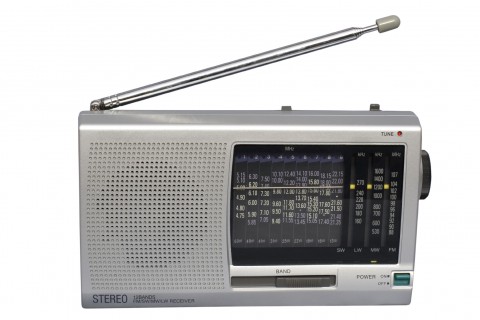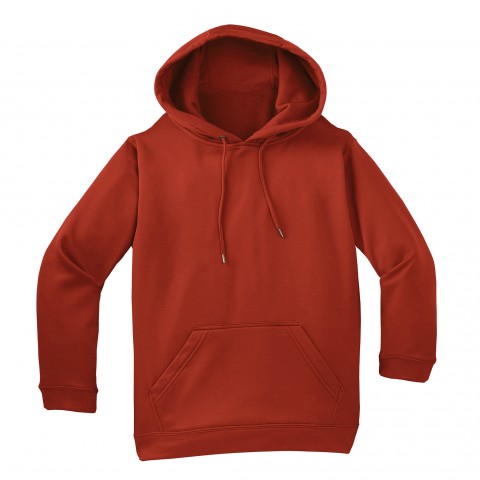From Wikipedia, the free encyclopedia
This is a list of English words of Hebrew origin. Transliterated pronunciations not found in Merriam-Webster or the American Heritage Dictionary follow Sephardic/Modern Israeli pronunciations as opposed to Ashkenazi pronunciations, with the major difference being that the letter taw (ת) is transliterated as a ‘t’ as opposed to an ‘s’.
There is a separate list of English words of Semitic origin other than those solely of Hebrew or Arabic origin.
From Hebrew words[edit]
- abacus
- from אבק ‘avaq ‘dust’ (AHD), probably from Greek ἄβαξ abax ‘slab’ (MW)
- agora (currency)
- from (AHD) אגורה agorah ‘small coin’ (MW), from Greek agora «an assembly of the People» from ageirein «to assemble
- aliyah
- from (AHD) עלייה ‘aliyah ‘ascent’ (MW)
- almemar
- from אלממר ‘almemar ‘bema’, from Arabic المنبر al-minbar ‘pulpit’ (AHD)
- amen
- from אמן ‘amen (MW) ‘certainly’, ‘verily’ (AHD)
- baal
- from בעל ba’al ‘lord’ (AHD, MW)
- babel
- from (AHD, MW) בלל balal ‘confound’ (SC) + in part from Akkadian 𒇷𒄿 𒀊𒁀 bāb-ilu ‘gate of god’ (MW)
- bar mitzvah
- from (AHD) בר מצוה bar miṣwah ‘son of the commandment’ (MW)
- bath (volume)
- from בַּת bath (MW) ’10 gallons liquid measure’ (AHD)from Greek βαθύς (bathus), «deep»,[1]
- bat mitzvah
- from (AHD) בת מצוה bath miṣwah ‘daughter of the commandment’ (MW)
- behemoth
- from (MW) בהמות behemoth ‘beasts’ (AHD)
- bethel
- from (AHD) ביתאל beth’el ‘house of God’ (MW)
- bethesda (chapel)
- (OSPD) from (AHD) Greek Bethesda ‘Bethesda’ (WNW), probably from bayith chesed ‘house of kindness’ (SC)
- bris
- from (WNW) ברית b’rith ‘covenant’ (MW)
- brith milah
- from (WNW) b’rith milah ‘covenant of circumcision’ (MW)
- brouhaha
- perhaps from barukh hab-ba ‘blessed be he who comes’ (WNW)
- cab (volume)
- from (MW) qab ‘hollow vessel’ (AHD)
- cabal
- from (AHD) קַבָּלָה qabbalah ‘received (lore)’ (MW)
- challah
- from (AHD) חלה ḥallah ‘egg-rich yeast-leavened bread’ (MW)
- chazan, hazan
- from חזן ḥazzan ‘cantor’ (MW) + in part from Aramaic, both from Akkadian (AHD)
- cherub
- from (AHD) כרוב kerubh ‘celestial hierarchy angel’ (MW)
- chutzpah
- from (AHD) חֻצְפָּה ḥuṣpah ‘supreme self-confidence’ (MW)
- cider
- from (AHD) שכר shekhar ‘strong drink’ (MW)
- copacetic
- disputed (MW) + perhaps from כל בצדק kol beṣedeq ‘all with justice’ (AHD), or כל בסדר kol beseder ‘all is in order’ (MW)
- cor (volume), kor (volume)
- from kor (AHD, WNW) ‘100 gallons capacity’ (MW)
- corban
- from (AHD) קָרְבָּן qorban ‘offering’ (MW)
- dybbuk
- from דיבוק dibbuq ‘wandering soul’ (AHD, MW)
- edenic
- from (WNW) עדן ‘eden ‘delight’ (AHD)
- ephah
- from (AHD) איפה ephah ‘1/10 homer dry measure’, from Egyptian (MW)
- galilee
- from Latin galilaea (AHD, MW), from גליל galiyl ‘circle’, ‘circuit’ (SC)
- ganef
- from (AHD) גנב gannabh ‘thief’ (MW)
- gerah
- from (MW) גרה gerah ‘grain’, ‘bean’ (AHD)
- get (divorce document)
- from גט get ‘document of release’ (MW)
- golem
- from גולם golem (AHD) ‘shapeless mass’ (MW)
- goy
- from גוי goy ‘nation’ (AHD, MW)
- gun moll
- from (AHD) גנב gannabh ‘thief’ (MW) + from מִרְיָם Miryam (AHD) ‘Miriam’ (MW, OED) (=’rebelliously’) (SC) + perhaps from Egyptian (HH)
- habdalah
- from (AHD) habhdalah ‘separation’ (MW)
- haftarah, haphtarah
- from (MW, WNW) patar ‘separate’, ‘discharge’ (AHD)
- haggadah
- from (AHD, MW) heged ‘a saying’ (WNW)
- halacha
- from הלכה halakhah ‘way’ (MW)
- hallelujah, alleluia
- from הללויה halleluyah ‘praise the LORD‘ (AHD, MW)
- halutz
- from hlṣ ‘be in the vanguard’ (WNW)
- hebraize
- from (MW) עברי ‘ibhri (AHD) ‘region across [descendant]’ (SC)
- heder
- from חדר heder ‘room’ (MW)
- homer (volume)
- from (AHD, MW) חמר hamar ‘surge up’, ‘swell up’ (WNW), Greek ὅμηρος (hómēros), «hostage»
- hora
- from הוֹרָה horah ‘circle dance of Romania and Israel’, from Romanian horă (MW), from Turkish hora, perhaps from Greek χορός khoros ’round dance’ (AHD)
- hosanna
- from (AHD) hoshi’ah-nna ‘save please’ (MW)
- jubilee
- from (AHD) יובל yobhel ‘ram’s horn’ (MW)
- judas
- from (MW) יהודה yehuda (AHD) ‘celebrated’ (SC)
- kabbalah, cabala
- from (AHD) קַבָּלָה qabbalah ‘received (lore)’ (MW)
- kaddish
- from (AHD, MW) qds ‘sanctify’ (WNW)
- kashrut
- from (AHD, MW) כשר ksr ‘be appropriate’ (WNW)
- kibbutz
- from קיבוץ qibbuṣ (MW) ‘gathering’ (AHD)
- kibosh
- disputed (AHD, MW) + perhaps from כבש kabash ‘tread down’, ‘disregard’[citation needed]
- kiddush
- from (AHD) qiddush ‘sanctification’ (MW)
- klezmer
- from (AHD) כלי זמר k’ley zemer ‘musical instruments’ (MW)
- knesset
- (OSPD) from kanas ‘assemble’ (AHD, WNW)
- kosher
- from (AHD, MW) כשר ksr ‘be appropriate’ (WNW)
- lehayim
- (OSPD) from l’ḥaim ‘to life’ (WNW)
- leviathan
- from (AHD) לויתן liwyathan ‘sea monster, whale’ (MW)
- macabre
- from French (danse) macabre (AHD, MW), probably from Latin (Chorea) Machabaeorum, from מקבת maqqebet ‘hammer’ (WNW), from נקב naqab ‘perforate’ (SC)
- maftir
- (OSPD) from maphtir ‘one that dismisses’ (NI)
- mahzor
- from (AHD) ḥzr ‘return’ (WNW)
- manna
- from מן man (AHD, MW) (SC)
- matzo
- from (AHD) מצה maṣah ‘unleavened bread’ (MW)
- maven
- from (AHD) מבין mebhin ‘one who is experienced’ (MW), ‘one who understands’ (OED)
- mazeltov
- from (WNW) מזל טוב mazzal tob ‘good luck’ (AHD)
- mazuma
- from (WNW) מזומן mezumman ‘fixed’ (AHD)
- megillah
- from (MW, WNW) galal ‘roll’ (AHD)
- menorah
- from (AHD) מנורה menorah ‘candlestick’ (MW)
- meshuga
- from (AHD) משוגע meshugga ‘crazy’ (MW).
- messiah
- from (AHD) משיח mashiaḥ ‘anointed’ (MW) + in part from Aramaic (AHD) meshiha ‘anointed’ (MW)
- mezuzah
- from מְזוּזָה mezuzah ‘doorpost’ (AHD, MW)
- midrash
- from (AHD) מדרש midrash ‘exposition’, ‘explanation’ (MW)
- mikvah
- from miqwah ‘purification bath’ (AHD)
- minyan
- from מִנְיָן minyan ‘number’, ‘count’ (MW), from Aramaic (AHD)
- mitzvah
- from (AHD) מצוה miṣwah ‘commandment’ (MW)
- mohel
- from מוהל mohel ‘person qualified to perform circumcision’ (WNW)
- momser
- from momser ‘bastard’ (WNW)
- mishpachah
- from mishpahah ‘family’, ‘clan’ (NI)
- moshav
- from (AHD) מוֹשָׁב moshabh ‘dwelling’ (MW)
- nabla
- probably from nebhel ‘harp’ (NI)
- nachas
- pleasure, satisfaction, delight; proud enjoyment (usage: I have nachas from you) (from Hebrew נחת pronounced ‘nachat’) (WNW)
- nebel
- from nebhel ‘harp’ (NI)
- omer
- from עמר ‘omer (AHD) ‘1/10 ephah dry capacity’ (MW)
- parashah
- from parashah ‘explanation’ (MW, WNW)
- pascal
- from ‘Pascal’ (AHD, MW), from[2] פסח pesah ‘passover’ (AHD, MW, OED)
- paschal
- from פסח על pasah al ‘passed over’ (AHD, MW, OED)
- pharaoh
- from פרעה par’oh ‘ruler of ancient Egypt’, from Egyptian (MW) pr-‘o ‘great house’ (AHD)
- pharisee
- from Aramaic (AHD) perisha ‘separated’, from (MW) פרש parash ‘separate’ (SC), ‘cleave’ (WNW)
- rabbi
- from (AHD, WNW) רב rabh ‘master’ (MW)
- rebbe
- from (AHD, WNW) רב rabh ‘master’ (MW)
- rebbetzin
- from (WNW) רב rabh ‘master’ (MW)
- sabbatical
- from (MW) שׁבת shabbat ‘day of rest’ (AHD)
- sabra
- from (AHD) ṣabar ‘prickly pear’ (MW)
- satanic
- from שטן satan ‘adversary’ (MW), ‘devil’ (AHD)
- schmooze
- from (AHD) שמועות shemu’oth ‘news’, ‘rumor’ (MW)
- schwa
- from שוא schewa‘ ‘unstressed mid-central vowel’ (MW), probably from Syriac ܥܗܘܐܝܝܐ sewayya ‘equal’ (AHD)
- seder
- from (AHD) סדר seder ‘order’ (MW)
- selah
- from (AHD) סֶלָה selah (MW) ‘suspension’, ‘pause’ (SC)
- seraph
- from (MW) שׂרף saraph ‘celestial being’ (AHD)
- shadchan
- (OSPD) from shiddekh ‘arrange a marriage’ (NI)
- shadrach
- (OSPD) from (AHD) shadrach ‘captive’ (WNW)[3]
- shalom
- from (AHD) שָׁלוֹם shalom ‘peace’ (MW)
- shalom aleichem
- from (AHD) שָׁלוֹם עֲלֵיכֶם shalom ‘alekhem ‘peace unto you’ (MW)
- shammes
- from (AHD) שמש shammash ‘sexton’ (MW)
- shamus
- perhaps from (AHD) שמש shammash ‘sexton’ (MW)
- shegetz
- from (AHD) שקץ sheqes ‘blemish’, ‘abomination’ (MW)
- shekel
- from (MW) שקל saqal ‘weigh’, from Canaanite tql (AHD)
- sheol
- (OSPD) from se’ol ‘underworld’ (AHD), perhaps from shaal ‘dig’ (WNW)
- shibboleth
- from (AHD) שיבולת shibboleth ‘stream’ (MW), ‘ear of grain’ (OED)
- shiksa
- from (AHD, WNW) שקץ sheqes ‘blemish’, ‘abomination’ (MW)
- shivah
- from (AHD) shibh’ah ‘seven’ (MW)
- shofar
- from shophar (MW) ‘ram’s horn’ (AHD)
- siddur
- from סידור siddur ‘arrangement’ (AHD), ‘order’ (MW)
- sukkah
- from סוכה sukkah ‘booth’, ‘shelter’ (MW)
- sycamine
- from (AHD, MW) שִׁקמָה shiqmah ‘mulberry tree’ (OED)
- tallith
- from (MW) tillel ‘cover’ (AHD)
- talmudism
- from (MW) lamad ‘learn’ (AHD)
- teraph
- from (AHD) תרפים teraphim ‘household god’ (MW)
- torah
- from תּוֹרָה tora ‘law’, ‘instruction’ (AHD)
- tref
- from taraph ‘tear’ (AHD)
- tsuris
- from (AHD) ṣarah ‘calamity’ (WNW)
- tush, toches
- from (AHD) תחת tahath ‘under’, ‘beneath’ (MW)
- tzitzit, zizith
- from (AHD) ציצית ṣiṣith ‘fringes’, ‘tassels’ (MW)
- ulpan
- from aleph ‘ox’, ‘leader’ (WNW)
- yeshiva
- from (AHD) ישיבה yeshibhah ‘talmudic school’ (MW)
- yid
- from יהודה yehudah (AHD) ‘celebrated’ (SC)
- zaddik
- from צדיק ṣaddiq ‘just’, ‘righteous’ (MW)
From Hebrew names[edit]
- abelia
- from ‘Abel’ (AHD, MW), from הבל Hebhel ‘Abel’[4] (=’emptiness’) (SC)
- abelian
- from ‘Abel’ (AHD, MW), from הבל Hebhel ‘Abel’[4] (=’emptiness’) (SC)
- abigail
- from (MW) אֲבִיגַיִל (SC) Avigail ‘Abigail’ (=’father of exaltation’) (HH)
- adam-and-eve
- from אדם Adam ‘Adam’ (MW) (=’earth’) (HH) + from חוה Hawwah ‘Eve’ (MW) (=’living’) (HH)
- ammonite
- from עַמּוֹן Ammon, Biblical tribe
- bedlam
- from (AHD, MW) בית לחם Beth Leḥem ‘Bethlehem’ (=’house of bread’)
- bejesus
- from (AHD) יֵשׁוּעַ Yeshu’a ‘Jesus’ (MW) (=’Jehovah-saved’) (SC)
- benday
- from (AHD) Binyamin ‘Benjamin’ (MW) (=’son of [the] right hand’) (SC) + from Old English (AHD, MW)
- cassia
- from קסיה qəṣi`â
- davit
- from (AHD) דָּוִד Dawid ‘David’ (MW) (=’loving’) (SC)
- hamantasch
- from Haman ‘Haman’ (MW) (=’vizier’) (SC) + from Yiddish (MW)
- hansom
- from ‘Hansom’ (MW), from ‘Hans’,[5] from Yohanan ‘John’ (=’the LORD is gracious’) (HH)
- jack
- 1 from יוחנן Yohanan ‘John’ (MW) (=’the LORD is gracious’) (HH)
2 perhaps from יַעֲקֹב Ya’aqobh ‘Jacob’ (MW) (=’he has protected’) (AHD) - jacket
- from יַעֲקֹב Ya’aqobh ‘Jacob’ (MW) (=’he has protected’) (AHD)
- jacobean
- from יַעֲקֹב Ya’aqobh ‘Jacob’ (MW) (=’he has protected’) (AHD)
- jacquard
- from ‘Jacquard’ (AHD, MW), from[6] יַעֲקֹב Ya’aqobh ‘Jacob’ (MW) (=’he has protected’) (AHD)
- jacquerie
- from יַעֲקֹב Ya’aqobh ‘Jacob’ (MW) (=’he has protected’) (AHD)
- jakes
- perhaps from יַעֲקֹב Ya’aqobh ‘Jacob’ (MW) (=’he has protected’) (AHD)
- jeez
- from (AHD) יֵשׁוּעַ Yeshu’a ‘Jesus’ (MW) (=’Jehovah-saved’) (SC)
- jehu
- from יהוא Yehu ‘Jehu’ (MW) (=’Jehovah [is] He’) (SC)
- jeremiad
- from (AHD) יִרְמְיָה Yirmeyah ‘Jeremiah’ (MW) (=’the LORD will rise’) (SC)
- jeroboam
- from (AHD, MW) יָרָבְעָם Yarobh’am ‘Jeroboam’ (=’people will contend’) (SC)
- jesuit
- from יֵשׁוּעַ Yeshu’a ‘Jesus’ (AHD) (‘Jehovah-saved’) (SC)
- jezebel
- from (AHD) איזבל Izebhel ‘Jezebel’ (MW) (=’chaste’) (SC)
- jimmy
- from (MW) ‘James’ (AHD), from יַעֲקֹב Ya’aqobh ‘Jacob’ (MW, OED) (=’he has protected’) (AHD)
- jockey
- from (AHD) יוחנן Yohanan ‘John’ (MW) (=’the LORD is gracious’) (HH)
- joe
- from יוֹסֵף Yoseph ‘Joseph’ (MW) (=’he shall add’) (HH)
- john (washroom)
- from (AHD) יוחנן Yohanan ‘John’ (MW) (=’the LORD is gracious’) (HH)
- johnny (gown)
- from (AHD) יוחנן Yohanan ‘John’ (MW) (=’the LORD is gracious’) (HH)
- jorum
- perhaps from (AHD, MW) Yehoram ‘Joram’ (=’Jehovah-raised’) (SC)
- joseph
- from (AHD) יוֹסֵף Yoseph ‘Joseph’ (MW) (=’he shall add’) (HH)
- lazar
- from (AHD) אלעזר El’azar ‘Lazarus’ (MW) (=’God is my help’) (HH)
- lazaretto
- from (AHD) אלעזר El’azar ‘Lazarus’ (MW) (=’God is my help’) (HH) + from (MW) נָצְרַת natzerath ‘Nazareth’ (WNW)
- macadam
- from ‘McAdam’ (MW), in part from Adham ‘Adam’ (=’earth’) (HH)
- macadamia
- from ‘Macadam’ (MW), in part from Adham ‘Adam’ (=’earth’) (HH)
- marionette
- from מִרְיָם Miryam (AHD) ‘Miriam’ (MW, OED) (=’rebelliously’) (SC) + perhaps from Egyptian (HH)
- marry (interjection)
- from מִרְיָם Miryam (AHD) ‘Miriam’ (MW, OED) (=’rebelliously’) (SC) + perhaps from Egyptian (HH)
- mick
- from Mikha’el ‘Michael’ (MW) (=’who [is] like God?’) (SC)
- mickey (drink)
- perhaps from (AHD) Mikha’el ‘Michael’ (MW) (=’who [is] like God?’) (SC)
- miquelet
- probably from Catalan Miquel (NI), from[7] Mikha’el ‘Michael’ (MW) (=’who [is] like God?’) (SC)
- moll
- from מִרְיָם Miryam (AHD) ‘Miriam’ (MW, OED) (=’rebelliously’) (SC) + perhaps from Egyptian (HH)
- nance
- from ‘Nancy’ (MW, AHD), probably in part from חנה Ḥannah ‘Anna’ (OED) (=’favored’) (HH, SC)
- nimrod
- from (AHD) נמרוד Nimrodh ‘Nimrod’ (=’hunter’) (MW)
- philistine
- 1 from פלשתים Pelistim ‘Philistines’ ‘Aegean people who settled Philistia’ (AHD)
2 from (MW) פלשת Pelesheth ‘Philistia’ (=’rolling’, ‘migratory’) (SC) - rube
- (AHD) from רְאוּבֵן Re’ubhen ‘Reuben’ (MW) (=’see ye a son’) (SC)
- samaritan
- from (AHD, MW) שֹׁמְרוֹן Shomron ‘Samaria’ (=’watch-station’) (SC)
- semitist
- from שם Shem ‘Shem’ (MW) (=’name’) (SC)
- simony
- from (AHD) שִׁמְעוֹן Shim’on ‘Simon’ (MW) (=’hearing’) (HH, SC)
- sodom
- from (MW) סדום s’dom ‘Sodom’ (AHD, OED) (=’burnt’) (SC)
- toby
- from (AHD, MW) טוביה Toviah ‘Tobias’ (=’goodness of Jehovah’) (SC)
- yankee
- probably from (AHD) יוחנן Yohanan ‘John’ (MW) (=’the LORD is gracious’) (HH)
Letter names[edit]
aleph, beth, gimel, daleth, he, waw, zayin, heth, teth, yod, kaph, lamed, mem, nun, samekh, ayin, pe, sadhe, qoph, resh, shin, taw (AHD, MW, WNW)
- alpha
- from Greek Άλφα alpha, perhaps from אלף aleph ‘ox’, ‘leader’ (WNW) + from Canaanite 𐤀𐤋𐤐 ‘alp ‘ox’ (AHD)
- beta
- from Greek Βήτα beta, from בית bet ‘house’, probably from Phoenician (WNW) + from Canaanite 𐤁𐤉𐤕 bet ‘house’ (AHD)
- gamma
- from Greek Γάμμα gamma, perhaps from גמל gimel ‘ruminant beast’ (WNW) + from Phoenician 𐤋𐤌𐤀𐤂 (AHD)
- delta
- from Greek Δέλτα delta (AHD), perhaps from דלת deleth ‘door’ (WNW) + of Semitic origin, akin to Phoenician 𐤕𐤋𐤀𐤃 dalt ‘door’ (AHD)
- eta
- from Greek eta, perhaps from chet (WNW) ‘terror’ (SC) + from (MW) Phoenician 𐤕𐤇 (AHD)
- iota
- from Greek Ιώτα iota, perhaps from יד yodh ‘hand’ (WNW) + from (MW) Phoenician 𐤕𐤏𐤉 (AHD)
- kappa
- from Greek Κάππα kappa, perhaps from כף kaph (WNW) ‘palm of the hand’ (MW) + from (MW) Phoenician 𐤅𐤀𐤊 (AHD)
- lambda
- from Greek Λάμβδα lambda, perhaps from למד lamedh ‘whip’, ‘club’ (WNW) + from (MW) Phoenician 𐤃𐤌𐤀𐤋 (AHD)
- nu
- from Greek Νυ nu, perhaps from נון nun ‘fish’ (WNW) + of Semitic origin (AHD)
- pi
- from Greek Πι pi, perhaps from פה pe ‘mouth’ (WNW) + from (MW) Phoenician 𐤄𐤐 (AHD)
- rho
- from Greek Ρω rho, perhaps from ראש rosh ‘head’ (WNW) + from (MW) Phoenician 𐤔𐤏𐤓 (AHD)
- tau
- from Greek Ταυ tau, perhaps from taw (WNW) ‘mark’, ‘cross’ (MW) + from (MW) Phoenician 𐤅𐤀𐤕 (AHD)
See also[edit]
- Lists of English words of international origin
- List of English words of Yiddish origin
- Hebraism
References[edit]
- ^ βαθύς, Henry George Liddell, Robert Scott, A Greek-English Lexicon, on Perseus
- ^ pascal. French-English translation in CollinsDictionary.com. Collins English Dictionary — Complete & Unabridged 11th Edition. Retrieved November 10, 2012.
- ^ «Shadrach: Definition». www.lexic.us.
- ^ a b «Abel». Behind the Name.
- ^ Weekley, Ernest, M.A. (1912). The Romance of Words. London: John Murray. p. 51.
Apart from assimilation, there is a tendency in English to substitute -m for -n …. In the family name Hansom, for Hanson, the son of Hans, we have dissimiliation.
{{cite book}}: CS1 maint: multiple names: authors list (link) - ^ Henry Harrison. Surnames of the United Kingdom: A Concise Etymological Dictionary. p. 233.
The French Jacquard = Jacques (q.v.) + the dim. suff. -ard [Teut. hard, hard]
- ^ Aaron Demsky. These Are the Names: Studies in Jewish Onomastics. p. 300.
Names from other traditions that were present in the Catalan-speaking area …. include: Adam, Noè (Noah), Miquel (Michael), and Samsó (Samson).
- AHD: American Heritage Dictionary of the English Language: 3rd or 4th edition
- HH: A Dictionary of First Names, Patrick Hanks & Flavia Hodges
- MW: Merriam-Webster’s Collegiate Dictionary: 10th or 11th edition
- NI: Webster’s New International Dictionary: 2nd or 3rd edition
- OED: Oxford English Dictionary: online edition
- SC: Strong’s Concordance
- WNW: Webster’s New World Dictionary: 3rd edition
- =: a name from a word or phrase with the meaning given
Home
→ Learning Hebrew
500+ Commonly Used Hebrew Words with English Transliteration
Learning Hebrew and want to strengthen your vocabulary? The following is a list of over 500 of the most commonly used Hebrew words. Most of the words on this list can be found with audio in this great collection of Hebrew Anki cards, courtesy of Teach Me Hebrew.
Be sure to also check out our collection of Common Hebrew Phrases in English Transliteration.
| Category | English | Transliteration | Hebrew |
| Adjectives, Adverbs | |||
| A little | K-tsat | קצת | |
| A lot | Har-be | הרבה | |
| Again | Shuv | שוב | |
| All | Kol | כל | |
| Alone | Le-vad | לבד | |
| Also | Gam | גם | |
| Angry | Ko-es | כועס | |
| Bad | Ra | רע | |
| Beautiful | Ya-fe | יפה | |
| Big | Ga-dol | גדול | |
| Black | Sha-khor | שחור | |
| Blue | Ka-chol | כחול | |
| Boring | Me-sha-a-mem | משעמם | |
| Cheap | Zol | זול | |
| Clean | Na-ki | נקי | |
| Closed | Sa-gur | סגור | |
| Cold | Kar | קר | |
| Correct | Na-chon | נכון | |
| Difficult | Ka-she | קשה | |
| Down | Le-ma-ta | למטה | |
| Early | Muk-dam | מוקדם | |
| Easy | Kal | קל | |
| Exciting | Mal-hiv | מלהיב | |
| Expensive | Ya-kar | יקר | |
| Fast | Ma-hair | מהיר | |
| Fat | Sha-men | שמן | |
| First | Ri-shon | ראשון | |
| Forbidden | A-sur | אסור | |
| Fried | Me-tu-gan | מטוגן | |
| Full | Ma-le | מלא | |
| Funny | Mats-chik | מצחיק | |
| Good | Tov | טוב | |
| Green | Ya-rok | ירוק | |
| Hard | Ka-she | קשה | |
| Half (of something) | Che-tsi | חצי | |
| Healthy | Ba-ri | בריא | |
| Here | Po | פה | |
| High | Ga-vo-ha | גבוה | |
| Hot | Kham | חם | |
| Hungry | Ra-ev | רעב | |
| Important | Cha-shuv | חשוב | |
| Inside | Bif-nim | בפנים | |
| Intelligent | Na-von | נבון | |
| Interesting | Me-an-yen | מעניין | |
| Jewish | Ye-hu-di | יהודי | |
| Kosher | Ka-sher | כשר | |
| Last, final | A-cha-ron | אחרון | |
| Late | Me-u-char | מאוחר | |
| Lazy | Ats-lan | עצלן | |
| Left (direction) | Smo-la | שמאלה | |
| Low | Na-mukh | נמוך | |
| Married | Na-su-i | נשוי | |
| Medium | Bei-no-ni | בינוני | |
| New | Cha-dash | חדש | |
| Next | Ha-ba | הבא | |
| Noisy | Ro-esh | רועש | |
| Okay | Be-se-der | בסדר | |
| Old (person) | Za-ken | זקן | |
| Old (thing) | Ya-shan | ישן | |
| Open | Pa-tu-akh | פתוח | |
| Orange (color) | Ka-tom | כתום | |
| Outside | Ba-chuts | בחוץ | |
| Poor | A-ni | עני | |
| Purple | Sa-gol | סגול | |
| Quarter (of something) | Re-va | רבע | |
| Quickly | Ma-hair | מהר | |
| Quiet | She-ket | שקט | |
| Ready | Mu-chan | מוכן | |
| Red | A-dom | אדום | |
| Religious | Da-ti | דתי | |
| Rich | A-shir | עשיר | |
| Right (direction) | Ya-mi-na | ימינה | |
| Secular | Chi-lo-ni | חלוני | |
| Sick | Cho-le | חולה | |
| Simple | Pa-shut | פשוט | |
| Singular; single (not married) | Ya-chid | יחיד | |
| Slow | I-ti | איטי | |
| Slowly | Le-at | לאט | |
| Small | Ka-tan | קטן | |
| Smart | Pi-ke-ach | פיקח | |
| Smelly | Mas-ri-ach | מסריח | |
| Soft | Rach | רך | |
| Soon | Be-ka-rov | בקרוב | |
| Spicy (hot) | Cha-rif | חריף | |
| Straight ahead; honest | Ya-shar | ישר | |
| Strong | Cha-zak | חזק | |
| Sweet | Ma-tok | מתוק | |
| Tasty | Ta-im | טעים | |
| There | Sham | שם | |
| Thin | Ra-ze | רזה | |
| Third (of something) | Shlish | שליש | |
| Tired | A-yef | עייף | |
| Today | Ha-yom | היום | |
| Together | Be-ya-chad | ביחד | |
| Tomorrow | Ma-char | מחר | |
| Twice | Pa-a-ma-yim | פעמים | |
| Ugly | Me-cho-ar | מכוער | |
| Up | Le-ma-la | למעלה | |
| Weak | Cha-lash | חלש | |
| Very | Me-od | מאוד | |
| Wet | Ra-tuv | רטוב | |
| White | La-van | לבן | |
| Who | Mi | מי | |
| Whole | Sha-laim | שלם | |
| Without | Bli | בלי | |
| Yellow | Tsa-hov | צהוב | |
| Yes | Ken | כן | |
| Yesterday | Et-mol | אתמול | |
| Conjunctions, prepositions | |||
| And | Ve | -ו | |
| Before | Lif-nei | לפני | |
| But | A-val | אבל | |
| By, with, at the place of | Ets-el | אצל | |
| From | Me | -מ | |
| If | Im | אם | |
| In, at | Be, ba | -ב | |
| Like/ as | Ke | -כ | |
| Maybe | U-lai | אולי | |
| No | Lo | לא | |
| Now | Ach-shav | עכשיו | |
| Of | Shel | של | |
| On, about | Al | על | |
| Once | Pa-am | פעם | |
| Only | Rak | רק | |
| Or | O | או | |
| So | Az | אז | |
| The | Ha | -ה | |
| This | Ze | זה | |
| To, for | Le | -ל | |
| Nouns | |||
| Address | Ktov-et | כתובת | |
| Air conditioner | Maz-gan | מזגן | |
| Airplane | Ma-tos | מטוס | |
| Airport | Na-mal te-u-fa | נמל תעופה | |
| Almond | Sha-ked | שקד | |
| Answer | Tshu-va | תשובה | |
| Ant | Ne-ma-la | נמלה | |
| Apartment | Di-ra | דירה | |
| Apple | Ta-pu-akh | תפוח | |
| Arabic | A-ra-vit | ערבית | |
| Arm | Yad | יד | |
| Atm | Kas-po-mat | כספומט | |
| Aunt | Do-da | דודה | |
| Baby | Ti-nok | תינוק | |
| Back | Gav | גב | |
| Bag | Tik | תיק | |
| Bakery | Ma-a-fi-ya | מאפייה | |
| Ball | Ka-dur | כדור | |
| Banana | Ba-na-na | בננה | |
| Bank | Bank | בנק | |
| Basketball | Ka-dur-sal | כדורסל | |
| Beach | Khof | חוף | |
| Bed | Mi-ta | מיטה | |
| Beef | Ba-kar | בקר | |
| Beer | Bi-ra | בירה | |
| Beet(root) | Se-lek | סלק | |
| Belt | Cha-go-ra | חגורה | |
| Bicycle | O-fa-na-yim | אופניים | |
| Bill, check | Khesh-bon | חשבון | |
| Bird | Tsi-por | ציפור | |
| Body | Guf | גוף | |
| Bone | E-tsem | עצם | |
| Book | Se-fer | ספר | |
| Bottle | Bak-buk | בקבוק | |
| Bowl | Ke-a-ra | קערה | |
| Boy | Ye-led | ילד | |
| Brain | Mo-akh | מוח | |
| Bread | Le-khem | לחם | |
| Break | Haf-sa-ka | הפסקה | |
| Breakfast | A-ru-chat bo-ker | ארוחת בוקר | |
| Brother | Ach | אח | |
| Brown | Khum | חום | |
| Building | Bin-yan | בניין | |
| Bus | O-to-bus | אוטובוס | |
| Butter | Chem-a | חמאה | |
| Cabbage | Kruv | כרוב | |
| Cake | U-ga | עוגה | |
| Camera | Mats-le-ma | מצלמה | |
| Car | Me-kho-nit | מכונית | |
| Carrot | Ge-zer | גזר | |
| Cat | Cha-tul | חתול | |
| Ceiling | Tik-ra | תקרה | |
| Chair | Ki-se | כיסא | |
| Challah | Cha-la | חלה | |
| Channel (tv) | A-ruts | ערוץ | |
| Chapter | Pe-rek | פרק | |
| Cheese | Gvi-na | גבינה | |
| Cherry | Duv-de-van | דובדבן | |
| Chest | Cha-ze | חזה | |
| Chicken | Of | עוף | |
| Chocolate | Sho-ko-lad | שוקולד | |
| City | Ir | עיר | |
| Classroom | Ki-ta | כיתה | |
| Clock | Sha-on | שעון | |
| Clothes | Be-ga-dim | בגדים | |
| Cloud | A-nan | ענן | |
| Cockroach | Juk | ג’וק | |
| Coffee | Ka-fe | קפה | |
| Color | Tse-va | צבע | |
| Company | Chev-ra | חברה | |
| Computer | Mach-shev | מחשב | |
| Country | Me-di-na | מדינה | |
| Cousin | Ben dod | בן דוד | |
| Cucumber | Me-la-fe-fon | מלפפון | |
| Dad | A-ba | אבא | |
| Date (the fruit) | Ta-mar | תמר | |
| Daughter | Bat | בת | |
| Day | Yom | יום | |
| Desert | Mid-bar | מדבר | |
| Dictionary | Mi-lon | מילון | |
| Doctor/physician | Ro-fe | רופא | |
| Dog | Ke-lev | כלב | |
| Door | De-let | דלת | |
| Drink | Shti-ya | שתייה | |
| Driver | Na-hag | נהג | |
| Ear | O-zen | אוזן | |
| East | Miz-rakh | מזרח | |
| Egg | Bei-tsa | ביצה | |
| End | Sof | סוף | |
| Engineer | Me-han-des | מהנדס | |
| English | An-glit | אנגלית | |
| Entrance | Kni-sa | כניסה | |
| Evening | E-rev | ערב | |
| Excellent | Me-tsu-yan | מצוין | |
| Exercise | Hit-am-lut | התעמלות | |
| Exit | Ye-tsi-a | יציאה | |
| Eye | A-yin | עין | |
| Face | Pa-nim | פנים | |
| Faculty | Fa-kul-ta | פקולטה | |
| Falafel | Fa-la-fel | פלאפל | |
| Fall (the season) | Stav | סתיו | |
| Family | Mish-pa-cha | משפחה | |
| Fig | Te-e-na | תאנה | |
| Toe | Ets-ba | אצבע | |
| Finger | Ets-ba | אצבע | |
| Fish | Dag | דג | |
| Floor | Rits-pa | רצפה | |
| Food | O-chel | אוכל | |
| Foot | Kaf re-gel | כף רגל | |
| Fork | Maz-leg | מזלג | |
| Friday | Yom shi-shi | יום שישי | |
| Friend | Cha-ver | חבר | |
| Fruit | Pri | פרי | |
| Future | A-tid | עתיד | |
| Game | Mis-chak | משחק | |
| Garbage can | Pach ash-pa | פח אשפה | |
| Garlic | Shoom | שום | |
| Gasoline | De-lek | דלק | |
| Gate | Sha-ar | שער | |
| Girl | Yal-da | ילדה | |
| Glass, cup | Kos | כוס | |
| Government | Mem-sha-la | ממשלה | |
| Grandfather | Sa-ba | סבא | |
| Grandmother | Sav-ta | סבתא | |
| Grapefruit | Esh-ko-lit | אשכולית | |
| Grapes | A-na-vim | ענבים | |
| Group | Kvu-tsa | קבוצה | |
| Hair | Se-ar | שער | |
| Hand | Yad | יד | |
| Hat | Ko-va | כובע | |
| He | Hu | הוא | |
| Head | Rosh | ראש | |
| Heart | Lev | לב | |
| Hebrew | Iv-rit | עברית | |
| Height | Go-va | גובה | |
| Hobby | Takh-biv | תחביב | |
| Holiday | Khag | חג | |
| Honey | Dvash | דבש | |
| Hospital | Beit kho-lim | בית חולים | |
| Hot chocolate | Sho-ko kham | שוקו חם | |
| Hotel | Ma-lon | מלון | |
| Hour | Sha-a | שעה | |
| House | Ba-yit | בית | |
| Hummus | Chu-mus | חומוס | |
| Husband | Ba-al | בעל | |
| I | A-ni | אני | |
| I.d.f. (israel defense forces) | Tsa-hal | צה”ל | |
| Ice cream | Gli-da | גלידה | |
| Idea | Ra-a-yon | רעיון | |
| Israel | Is-ra-el | ישראל | |
| Juice | Mits | מיץ | |
| Key | Maf-te-ach | מפתח | |
| Kitchen | Mit-bakh | מטבח | |
| Knife | Sa-kin | סכין | |
| Lamb | Ta-le | טלה | |
| Language | Sa-fa | שפה | |
| Leg | Re-gel | רגל | |
| Lemon | Li-mon | לימון | |
| Lesson | Shi-ur | שיעור | |
| Lettuce | Cha-sa | חסה | |
| Library | Sif-ri-ya | ספרייה | |
| Lizard | Le-ta-a | לטאה | |
| Mail; post office | Do-ar | דואר | |
| Mall | Kan-yon | קניון | |
| Manager | Me-na-hel | מנהל | |
| Mango | Man-go | מנגו | |
| Meat | Ba-sar | בשר | |
| Meter | Me-ter | מטר | |
| Microwave | Mik-ro-gal | מיקרוגל | |
| Milk | Cha-lav | חלב | |
| Minute | Da-ka | דקה | |
| Mold | O-vesh | עובש | |
| Mom | I-ma | אימא | |
| Moment | Re-ga | רגע | |
| Monday | Yom she-ni | יום שני | |
| Money | Ke-sef | כסף | |
| Month | Cho-desh | חודש | |
| Moon | Ya-re-akh | ירח | |
| Morning | Bo-ker | בוקר | |
| Mosquito | Ya-tush | יתוש | |
| Mouth | Pe | פה | |
| Movie | Se-ret | סרט | |
| Museum | Mu-zei-on | מוזיאון | |
| Mushrooms | Pit-ri-yot | פטריות | |
| Music | Mu-zi-ka | מוזיקה | |
| Name | Shem | שם | |
| Napkin | Ma-pit | מפית | |
| Nectarine | Nek-ta-ri-na | נקטרינה | |
| Neighborhood | Sh’chu-na | שכונה | |
| News | Cha-da-shot | חדשות | |
| Newspaper | I-ton | עיתון | |
| Night | Lai-la | לילה | |
| Noon | Tso-ho-ra-yim | צהריים | |
| North | Tsa-fon | צפון | |
| Nose | Af | אף | |
| Notebook | Mach-be-ret | מחברת | |
| Nothing | Klum | כלום | |
| Number | Mis-par | מספר | |
| Office | Mis-rad | משרד | |
| Oil | She-men | שמן | |
| Olive | Za-yit | זית | |
| Onion | Ba-tsal | בצל | |
| Orange (food) | Ta-puz | תפוז | |
| Oven | Ta-nur | תנור | |
| Pain/ache | Ke-ev | כאב | |
| Palm | Kaf yad | כף יד | |
| Pants | Mich-na-sa-yim | מכנסים | |
| Paper | Ni-yar | נייר | |
| Parents | Ho-rim | הורים | |
| Parsley | Pet-ro-zil-ya | פטרוזיליה | |
| Passport | Dar-kon | דרכון | |
| Past | A-var | עבר | |
| Pasta | Pas-ta | פסטה | |
| Pastry | Ma-a-fe | מאפה | |
| Peach | A-far-sek | אפרסק | |
| Pear | A-gas | אגס | |
| Pen | Et | עט | |
| Pencil | I-pa-ron | עפרון | |
| Pepper | Pil-pel | פלפל | |
| Pharmacy | Beit mir-ka-chat | בית מרקחת | |
| Piano | Psan-ter | פסנתר | |
| Pickles | Cha-mu-tsim | חמוצים | |
| Picture | Tmu-na | תמונה | |
| Pillow | Ka-rit | כרית | |
| Pineapple | A-na-nas | אננס | |
| Pita | Pi-ta | פיתה | |
| Place | Ma-kom | מקום | |
| Plate | Tsa-la-chat | צלחת | |
| Plum | She-zif | שזיף | |
| Police | Mish-ta-ra | משטרה | |
| Pomegranate | Ri-mon | רימון | |
| Potato | Ta-pu-ach a-da-ma | תפוח אדמה | |
| Present (tense) | Ho-ve | הווה | |
| Printer | Mad-pe-set | מדפסת | |
| Question | She-e-la | שאלה | |
| Quinoa | Ki-no-a | קינואה | |
| Rabbi | Rav | רב | |
| Rain | Ge-shem | גשם | |
| Receipt | Ka-ba-la | קבלה | |
| Refrigerator | Me-ka-rer | מקרר | |
| Restaurant | Mis-a-da | מסעדה | |
| Rice | O-rez | אורז | |
| River | Na-har | נהר | |
| Road, route | Kvish | כביש | |
| Room | Che-der | חדר | |
| Rug | Sha-ti-akh | שטיח | |
| Salad | Sa-lat | סלט | |
| Salt | Me-lakh | מלח | |
| Sandals | San-da-lim | סנדלים | |
| Saturday | Sha-bat | שבת | |
| Sauce | Ro-tev | רוטב | |
| Schnitzel | Shni-tsel | שניצל | |
| School | Beit se-fer | בית ספר | |
| Scientist | Mad-an | מדען | |
| Sea | Yam | ים | |
| Serving/portion | Ma-na | מנה | |
| Shakshuka | Shak-shu-ka | שקשוקה | |
| Shawarma | Sha-war-ma | שווארמה | |
| She | Hi | היא | |
| Sheet | Sa-din | סדין | |
| Shekel | She-kel | שקל | |
| Shirt | Chul-tsa | חולצה | |
| Shoes | Na-a-la-yim | נעליים | |
| Shorts | Mich-na-sa-yim k-tsar-im | מכנסים קצרים | |
| Shuttle taxi | Shei-rut | שירות | |
| Sidewalk | Mid-ra-cha | מדרכה | |
| Sister | A-chot | אחות | |
| Skirt | Cha-tsa-it | חצאית | |
| Sky | Sha-ma-yim | שמיים | |
| Soap | Sa-bon | סבון | |
| Soccer | Ka-du-re-gel | כדורגל | |
| Socks | Gar-ba-yim | גרביים | |
| Sofa | Sa-pa | ספה | |
| Someone | Mi-she-hu | מישהו | |
| Something | Ma-she-hu | משהו | |
| Son | Ben | בן | |
| Soup | Ma-rak | מרק | |
| South | Da-rom | דרום | |
| Spider | A-ka-vish | עכביש | |
| Spinach | Te-red | תרד | |
| Spoon | Kaf | כף | |
| Sport | Sport | ספורט | |
| Spring | A-viv | אביב | |
| Squash, zucchini | Ki-shu | קישוא | |
| Star | Ko-chav | כוכב | |
| Station, stop | Ta-cha-na | תחנה | |
| Stomach | Be-ten | בטן | |
| Stop | A-tsor | עצור | |
| Store | Kha-nut | חנות | |
| Story | Si-pur | סיפור | |
| Strawberry | Tut | תות | |
| Street | Re-chov | רחוב | |
| Student | Stu-dent | סטודנט | |
| Sugar | Su-kar | סוכר | |
| Summer | Ka-yits | קיץ | |
| Sun | She-mesh | שמש | |
| Sunday | Yom ri-shon | יום ראשון | |
| Supermarket | Su-per-mar-ket | סופרמרקט | |
| Surname | Shem mish-pa-cha | שם משפחה | |
| Sweet potato | Ba-ta-ta | בטטה | |
| Swimming | Schi-ya | שחייה | |
| Synagogue | Beit kne-set | בית כנסת | |
| Table | Shul-chan | שולחן | |
| Taxi | Mo-nit | מונית | |
| Tea | Te | תה | |
| Teacher | Mo-re, mo-ra | מורה | |
| Teeth | Shi-na-yim | שיניים | |
| Telephone | Te-le-fon | טלפון | |
| Test/exam | Miv-khan | מבחן | |
| They (f.) | Hen | הן | |
| They (m.) | Hem | הם | |
| Thumb | A-gu-dal | אגודל | |
| Thursday | Yom cha-mi-shi | יום חמישי | |
| Time | Zman | זמן | |
| Toilet (bathroom) | She-ru-tim | שרותים | |
| Tomato | Ag-va-ni-ya | עגבניה | |
| Towel | Ma-ge-vet | מגבת | |
| Traffic | Tnu-a | תנועה | |
| Train | Ra-ke-vet | רכבת | |
| Tree, wood | Ets | עץ | |
| Trip, hike | Ti-yul | טיול | |
| Tuesday | Yom shli-shi | יום שלישי | |
| Tunnel | Min-ha-ra | מנהרה | |
| Turkey | Ho-du | הודו | |
| Tv | Te-le-viz-ya | טלוויזיה | |
| Uncle | Dod | דוד | |
| University | U-ni-ver-si-ta | אוניברסיטה | |
| Vacation | Chuf-sha | חופשה | |
| Vegetables | Ye-ra-kot | ירקות | |
| Wall | Kir | קיר | |
| Wallet | Ar-nak | ארנק | |
| Walnut | E-goz me-lech | אגוז מלך | |
| Water | Ma-yim | מים | |
| Watermelon | A-va-ti-ach | אבטיח | |
| We | A-nach-nu | אנחנו | |
| Weapon | Ne-shek | נשק | |
| Weather | Me-zeg a-vir | מזג אוויר | |
| Wednesday | Yom re-vi-i | יום רביעי | |
| Week | Sha-vu-a | שבוע | |
| Weekend | Sof sha-vu-a | סוף שבוע | |
| Weight | Mish-kal | משקל | |
| West | Ma-a-rav | מערב | |
| Wife | I-sha | אישה | |
| Window | Cha-lon | חלון | |
| Wine | Yay-in | יין | |
| Winter | Cho-ref | חורף | |
| World | O-lam | עולם | |
| Year | Sha-na | שנה | |
| Yogurt | Yo-gurt | יוגורט | |
| You (f.) | At | את | |
| You (f.p.) | A-ten | אתן | |
| You (m.) | A-ta | אתה | |
| You (m.p.) | A-tem | אתם | |
| Phrases | |||
| Bless you | Liv-ri-ut | לבריאות | |
| Cheers! | Le-cha-yim | לחיים | |
| Date of birth | Ta-a-rich lei-da | תאריך לידה | |
| Dinner | A-ru-chat e-rev | ארוחת ערב | |
| Excuse me | Sli-kha | סליחה | |
| First name | Shem pra-ti | שם פרטי | |
| Get going | Ya-la | יאללה | |
| Good luck | Be-hats-la-cha | בהצלחה | |
| Hello | Sha-lom | שלום | |
| It is possible | Ef-shar | אפשר | |
| Lunch | A-ru-chat tso-ho-ra-yim | ארוחת צהריים | |
| Please | Be-va-ka-sha | בבקשה | |
| Hold on | Shni-ya | שניה | |
| See you later | Le-hit-ra-ot | להתראות | |
| Thank you | To-da | תודה | |
| There is/are | Yesh | יש | |
| There isn’t/aren’t | Ein | אין | |
| Question Words | |||
| How | Eich | איך | |
| How much | Ka-ma | כמה | |
| What | Ma | מה | |
| When | Ma-tai | מתי | |
| Where | Ei-fo | איפה | |
| Which | Ei-ze | איזה | |
| Why | La-ma | למה |
Comments
(0)
Online dictionary: Hebrew-English translation of words and expressions, definition, synonyms
Hebrew » English dictionary with thousands of words and phrases
Reverso offers you the best tool for learning English, the Hebrew English dictionary containing commonly used words and expressions, along with thousands of Hebrew entries and their English translation, added in the dictionary by our users. For the ones performing professional translations from Hebrew to English, the specialized terms found in our dictionary are very helpful.
See the latest user contributions to the Hebrew-English dictionary and add your own:
|
You want to reject this entry: please give us your comments (bad translation/definition, duplicate entries…) |
- Edit the entry
- Delete the entry
- Add a suggestion
- Add comment
- Validate
- !Put in pending
- !Reject
To add entries to your own vocabulary, become a member of Reverso community or login if you are already a member.
It’s easy and only takes a few seconds:
How to participate:
- Add words and phrases with complete translations and definitions
- Comment on the Hebrew to English translations submitted by other users
- Vote for or against the English translation of Hebrew words.
» How to contribute
Be a co-author of our Hebrew-English dictionary
Find even more Hebrew to English translations added by our users, in the Hebrew-English Collaborative Dictionary. The translations of the words and expressions are illustrated by examples and in the Collaborative Dictionary you will discover slang terms, technical translations, familiar words and expressions, regionalisms that are difficult to find in the traditional online dictionaries.
A complete dictionary search
Get results from both the General dictionary and the Collaborative one through one single interface! As we try to make it easy for you to translate into English the Hebrew words and expressions, you are given the possibility to see synonyms of a word, conjugate it and obtain the word pronunciation, or even add another meaning to the Hebrew-English dictionary, all these in only one click on the word.
Why use Hebrew-English dictionary
- When searching for a word, you get as results translations from the general dictionary, and words and expressions added by users.
- It offers you quick access to synonyms, pronunciation and conjugation of a word
- By adding words or expressions to the online dictionaries you can position yourself as a language expert
- If you don`t know a word meaning you can start a discussion on it, or ask for its Hebrew English translation
Register to enjoy these benefits and much more.
See Hebrew-English translations from our dictionary
Reverso Products
- Need professional translation solutions for your company?
- Get the famous Collins dictionaries on your PC
- Add Reverso to your browser
- Translate millions of words and expressions in context
- Download Reverso Context free app for iOS and Android

Did you know that modern Hebrew is literally riddled with words borrowed from or inspired by English? While the modern age, globally interconnected as it is, has seen many languages absorb some words from English, the prevalence of English words in the Hebrew language may be considered a unique phenomenon.
This is because Hebrew remained completely unspoken for almost two millennia, and thus did not evolve its lexicon naturally as other, continuously used languages did. When Jews finally did begin reviving Hebrew in the late nineteenth century, there was a vast void of missing vocabulary needed to describe all the trappings of modernity. Moreover, from 1917 until 1948, then-Palestine (what is now Israel and the Palestinian territories) was under British rule, making English a natural source to draw on in cases where Hebrew lacked a certain word or phrase.
In fact, there are numerous cases of Hebrew speakers opting for an English word even when there is a good Hebrew word for something!
The revival of Hebrew was initially a very conscious effort, led chiefly by master linguist and mad idealist Eliezer ben Yehuda. However, as Hebrew caught hold of more and more Zionist Jews as a spoken language, it inevitably began to take on a life of its own—especially following the births of the first generations of Jews to speak Hebrew as a first language. Naturally, as time progressed, modern Hebrew shifted away from the academic sphere to become the home turf of those who spoke it natively.
Ben Yehuda, as head of the academic camp reviving the language, founded ועד הלשון העברית (Va’ad ha-Lashon ha-’Ivrit), or “The Hebrew Language Committee” in 1890. He also started the first Hebrew dictionary to include both classical and modern Hebrew words. In coining new words, he would generally first attempt to draw on Hebrew roots, or שורשים (shorashim). However, where he failed to find a relevant root or where the result was awkward, he would turn to Aramaic or Arabic in search of a source word, due to their proximity to Hebrew—both are members of the Semitic language family. However, polyglot that he was, he also drew on various other languages, as well. This was despite fierce resistance from others involved in reviving the language, who vocally rejected any foreign influence on the language. Ben Yehuda was among a minority who seemed to recognize that linguistic interchange was not only a matter of course, but also nothing to be ashamed of in a place as linguistically diverse as Israel and for a people as culturally diverse as the Jews.
Regardless of academic attempts to keep Hebrew “pure,” once Hebrew sprouted its own wings as a spoken language, speakers naturally began importing loanwords into Hebrew from the other languages they spoke or read, as well as applying linguistic features from other languages to modify proper Hebrew words. Even the academics themselves seemingly could not resist this organic change toward expanding and refining the language with some help from abroad. In 1953, The Hebrew Language Committee changed its name to האקדמיה ללשון העברית (Ha-Akademiyah la-Lashon ha-’Ivrit), or “The Academy of the Hebrew Language.” This change swapped out the Hebrew ועד (va’ad), or “committee,” for אקדמיה (akademiyah), meaning “academy.” This word derives from the Greek Akadēmos, probably reaching Hebrew by way of English’s “academy” or perhaps French’s académie.
With the passage of time, a second wave of English influence swept over the Hebrew language, thanks to immigration, tourism, and business ties to Israel on the part of English speakers. In addition, English-language media such as movies, TV shows, music, and later the Internet, have all made their mark on the language, endowing it with a trove of lexical contributions in every sphere.
Without further ado, let’s take a look at some examples of how English words have made their way into Hebrew and how they are used. And as a bonus, we’ll wrap up by taking a look at some English words whose Hebrew provenance may well surprise you.
Table of Contents
- As-Is Loanwords
- Gendered Loanwords
- Hebrew Verbs Formed From English Words
- Some English-to-Hebrew Fails
- English Words Originating in Hebrew
- Let HebrewPod101 Help You Make the Link Between Hebrew and English
As-Is Loanwords
The first category of common English words in Hebrew we’ll cover are the English loanwords you’re most likely to hear Hebrew speakers use in a similar fashion to their original English counterparts. Keep in mind that their application may not always be exactly the same in Hebrew as in English.
- היי
hay
“hi”
This one is used just the same as it is in English. This is notwithstanding the fact that שלום (shalom) is the proper Hebrew greeting, and, in fact, can also be used as a farewell.
היי! מה שלומך?
Hay! Mah shlomekh?
“Hi! How are you?”
- ביי
bay
“bye”
Once again, this is used the same in Hebrew as it is in English.
היה כיף לראות אותך. ביי!
Hayah keyf lir’ot otkha. Bay!
“It was good to see you. Bye!”
- קול
kul
“cool”
This one is pretty straightforward. Israelis often use this English word in the same slang sense as English speakers do. Here’s an example:
אתה טס לניו יורק? איזה קול!
Atah tas le-Nyu York? Eyzeh kul!
“You’re flying to New York? How cool!”
- פליז
pliz
“please”
This is an example of an English word that has an exact Hebrew semantic parallel but is used alternatively for emphasis.
אמא, בבקשה תני לי גלידה. פליז!
Imma, bevakashah tni li glidah. Pliz!
“Mom, please give me ice cream. Please!”
- סורי
sori
“sorry”
This is another case where a word that exists in Hebrew—סליחה (slikhah), meaning “sorry“—may be substituted by its English equivalent for emphasis.
שכחתי להביא לך את הכסף. סורי!
Shakhakhti lehavi lekha et ha-kesef. Sori!
“I forgot to bring you the money. Sorry!”
- טלפון
telefon
“telephone”
האם יש לך את מספר הטלפון של רם?
Ha’im yesh lekha et mispar ha-telefon shel Ram?
“Do you have Ram’s telephone number?”
Interestingly, it was Eliezer ben Yehuda who tried to introduce an alternative word for this device: שח-רחוק (sakh-rakhok), which is derived from the following words:
- שיחה (sikhah) – “conversation”
- רחוק (rakhok) – “distant”
However, this coinage was ultimately rejected by the Hebrew Language Committee, and the more universal טלפון (telefon) is still in use today.
- אוטו
oto
“automobile”
While the truncated form of this word (combined with its Hebrew pronunciation) may throw you off, this everyday Hebrew word simply means “automobile.” It is used synonymously with the proper Hebrew word, מכונית (mekhonit).
איפה חנינו את האוטו?
Eyfoh khaninu et ha-oto?
“Where did we park the car?”
- אינטרנט
internet
“internet”
Though the Academy of the Hebrew Language tried to get Israelis to use the Hebrew neologism מרשתת (mirshetet), formed from the word רשת (reshet), meaning “net,” Israelis still universally use this loanword from English.
האינטרנט כאן ממש איטי.
Ha-Internet kan mamash iti.
“The Internet here is really slow.”
- רדיו
radyo
“radio”
This one is the same in Hebrew as in English.
הגבר את הרדיו. אני רוצה לשמוע את החדשות.
Hagber et ha-radyo. Ani rotzah lishmo’a et ha-khadashot.
“Turn up the radio. I want to listen to the news.”
- ג’ינס
jins
“jeans”
Ever since James Dean and Marilyn Monroe made them hip, bluejeans have seemingly been in style the world over, and Israel is no exception.
קניתי ג’ינס חדש בקניון.
Kaniti jins khadash ba-kanyon.
“I bought new jeans at the mall.”
- פול
ful
“full” / “a lot of”
This one can have either the same meaning as in English or be used slightly differently to mean a lot of something. Again, this idea can be expressed in proper Hebrew, but English is often used instead, just to be קול (kul).
יש לי פול זמן מחר. בואו ניפגש.
Yesh li ful zman makhar. Bo’u nipagesh.
“I have a lot of time tomorrow. Let’s get together.”
- ווליום
volyum
“volume”
This one is another case of an English word that has a perfectly serviceable Hebrew equivalent (עוצמה [otzmah]), but is nevertheless often preferred by Israelis, often in conjunction with our previous example.
אני אוהב לשמוע מוסיקה בפול ווליום כשאני רץ.
Ani ohev lishmo’a musikah be-ful volyum ke-she-ani ratz.
“I like to listen to music at full volume when I run.”
- ספיישל
speshel
“special”
This word is used in a way that linguists called “narrowing.” That is to say, Hebrew does not employ it to describe just anything special—the word for which is מיוחד (meyukhad)—but is rather used in specific cases, particularly in reference to a special media event or to describe taxis pre-hired to go from a given point of departure to a given destination (as opposed to a taxi flagged down as it circulates).
אנחנו נוסעים לשדה התעופה הלילה במונית ספיישל.
Anakhnu nos’im li-sdeh ha-te’ufah halaylah be-monit speshel.
“We’re headed to the airport tonight in a special taxi.”
- פופקורן
popkoren
“popcorn”
This one is a bit funny-sounding to the English ear in its Hebrew iteration. Perhaps due to the relatively common Hebrew last name Koren, Israelis have inserted an extra vowel between the final R and N.
בא לכם פופקורן עם הסרט?
Ba lakhem popkoren ‘im ha-seret?
“Do you want popcorn with the movie?”
- קורס
kurs
“course”
This one is pretty straightforward. As in English, this is used to refer to any sort of training or shorter educational undertaking.
אני רוצה לעשות קורס צניחה חופשית בסוף השבוע.
Ani rotzeh la’asot kurs tznikhah khofshit be-sof ha-shavu’ah.
“I want to take a skydiving course this weekend.”
- פרויקט
proyect
“project”
This one is almost as-is, but it does have a modified pronunciation in Hebrew.
פרויקט העירייה החדש עלה פי שלוש מהמתכונן.
Proyekt ha-’iriyah he-khadash ‘alah pi shalosh me-ha-metukhnan.
“The municipality’s new project cost three times as much as planned.”
- פינישים
finishim
“finishing/fine touches”
This is another case of narrowing. This word is not used to say “finish”—the Hebrew word for which is either לגמור (ligmor) or לסיים (lesayem)—but specifically to refer to the fine last details in a task, work of art, etc. It’s most often used in modified form to bear the Hebrew masculine plural form (ending in -ים [-im]).
חסרים רק כמה פינישים אחרונים ואני כבר מסיים את הפרויקט.
Khaserim rak kamah finishim akharonim va-ani kvar mesayem et ha-proyect.
“I have a few finishing touches left before I can complete the project.”
- טנק
tank
“tank”
This one is an important importation from English, as Israel’s armored corps is world-famous for its military prowess.
בצבא הייתי מפקד טנק.
Ba-tzavah hayiti mefaked tank.
“In the military, I was a tank commander.”
Gendered Loanwords
Unlike English, Hebrew is a gendered language. This means that all nouns and adjectives are either masculine or feminine. Let’s look at some cases where English words in the Hebrew language get hebracized when describing the feminine versus the masculine.
- ברמן
barmen
“bartender”
This one is taken from British English, in which barmen tend bar at pubs (versus North American English, in which bartenders tend bar at bars). Aside from the fact that this gets gendered to describe a female bartender, note that Israelis also pronounce the male singular form as if it were the plural in English.
דן הוא ברמן. גם דנה היא ברמנית.
Dan hu barmen. Gam Danah hi barmenit.
“Dan is a bartender. Dana is a bartender too.”
- סנוב
snob
“snob”
This is another English loanword that gets gendered when describing a female.
שלמה הוא ממש סנוב. חברה שלו, יונית, היא סנובית אפילו יותר גרועה.
Shlomoh hu mamash snob. Khaverah shelo, Yonit, hi snobit afilu yoter geru’ah.
“Shlomo is a real snob. His girlfriend, Yonit, is an even worse snob.”
- מניאק
maniyak
“maniac”
This one means much the same thing in Hebrew as it does in English.
אל תהיה מניאק כמו אחותך המניאקית.
Al tihiyeh maniyak k’mo akhotkha ha-maniyakit.
“Don’t be a maniac like your maniac sister.”
- די-ג’יי
di-jay
“DJ”
This term, as well, means precisely the same thing in Hebrew as it does in English.
רון הוא די-ג’יי מצויין ואשתו, שרה, היא די-ג’ייאית אפילו יותר טובה.
Ron hu di-jey metzuyan ve-’ishto, Sarah, hi di-jayit afilu yoter tovah.
“Ron is a great DJ, and his wife, Sarah, is an even better DJ.
Hebrew Verbs Formed From English Words
Because of its root system, Hebrew has great flexibility in the formation of new words. In some cases, Hebrew takes English words and turns them into fully functional, conjugatable Hebrew verbs. Because of the rules of ניקוד (nikkud), or “diacritical marks,” this often produces some funny-sounding results to the English ear. Here are some examples.
- לבלף
lebalef
“to bluff”
אני כבר רואה שאתה מבלף. שכחת את יום ההולדת שלי לגמרי!
Ani kvar ro’ah she-atah mevalef. Shakhakta et yom ha-huledet sheli legamrey!
“I can already see that you’re bluffing. You completely forgot my birthday!”
- למקסם
lemaksem
“to maximize”
כל הכבוד! מיקסמנו את המכירות שלנו ברבעון האחרון!
Kol ha-kavod! Miksamnu et ha-mekhirot shelanu ba-riv’on ha-akharon!
“Way to go! We maximized our sales in the last quarter!”
- לפמפם
lepampem
“to pump”
זה אוטו ישן. פימפמת את הבלמים?
Zeh oto yashan. Pimpamta et ha-b’lamim?
“This is an old car. Did you pump the brakes?”
- לדסקס
ledaskes
“to discuss”
בוא נדסקס את זה ביום ראשון אצלי במשרד.
Bo nedaskes et zeh be-Yom Rishon etzli ba-misrad.
“Let’s discuss it Sunday in my office.”
- לדקלם
ledaklem
“to declaim” / “to recite”
בני בן השנתיים כבר יודע לדקלם את אותיות האל”ף-בי”ת.
B’ni ben ha-shnatayim kvar yode’a ledaklem et otiyot ha-alef-beyt.
“My two-year-old son can already recite the letters of the alphabet.”
Some English-to-Hebrew Fails
A final category of loanwords that will hopefully bring a smile to your lips (as you practice pronouncing them) are Hebrew words that originated in English but went through some distortion, or even corruption, during their entry into Hebrew.
- פנצ’ר
pancher
“puncture” / “flat tire”
This one would make sense to the English ear if the pronunciation weren’t so different from the original. Note that ‘puncture’ is the more common British way of referring to what North Americans usually call a ‘flat tire.’
אני חייב למצוא מוסך תיכף מיד. יש לי פנצ’ר.
Ani khayav limtzo musakh tekhef u-miyad. Yesh li pancher.
“I need to find a garage right away. I have a flat tire.”
- אינסטלטור
instelator
“plumber”
One can only assume that whoever coined this word had the English verb “install” in mind, and figured that an ‘instelator would be the person installing a sink or toilet tank. Though a proper Hebrew word for “plumber” does exist—שרברב (shravrav)—this Hebrish word is far more common in Israel today.
יש לך מספר של איזה אינסטלטור? כל הבית שלי מוצף!
Yesh lekha mispar shel eyzeh ‘instelator? Kol ha-bayit sheli mutzaf!
“Do you have the number of a plumber? My whole house is flooded!”
- סנפלינג
snepling
“rappelling”
This is the product of another linguistic mixup. Someone must have heard the term “snap link” while rock climbing, and, confusing the “ink” for an “-ing” suffix, coined this word. Today, Israelis (including in the military!) use this word to refer to rappelling.
למדתי לעשות סנפלינג כחלק מקורס מצילים בצבא.
Lamadti la’asot snepling ke-khelek mi-kurs metzilim ba-tzava.
“I learned rappelling as part of a rescuers course in the army.”
- טוקבקים
tokbekim
“feedback”
This one comes from the TalkBack Reader Response System, one of the first online systems to allow users to post feedback on a website. Between the linguistic “widening” (the opposite of narrowing) of TalkBack and its funny pronunciation, this one is likely to baffle the uninitiated English speaker.
ראית את מה שהוא כתב בטוקבקים על המאמר על הנשיא?
Ra’it et mah she-hu katav ba-tokbekim ‘al ha-ma’amar ‘al ha-nasi?
“Did you see what he wrote in the feedback on that article on the president?”
- לעשות פן
la’asot fen
“to blow-dry”
This one presumably derives from the English word “fan,” which a hairdryer certainly contains. By the logic of this phrase, blow-drying or straightening one’s hair is literally “to do the fan.”
עשיתי פן לפני המסיבה כי היו לי קרזולים.
Asiti fen lifney ha-mesibah ki hayu li kirzulim.
“I blow-dried my hair before the party because I had frizz.”
- מסטינג
mesting
“mess kit”
This one is a distortion of the English word “mess tin,” which traditionally was a standard-issue set of utensils for soldiers to carry in their kit, which was originally made of tin. As in the case of סנפלינג (snepling), it’s likely that the Hebrew ear misheard the final “in” as an “-ing” suffix.
אכלנו מאותו המסטינג.
Akhalnu me-oto ha-mesting.
“We ate from the same mess kit.”
(This is a common way of saying that people were brothers in arms during their military service, or that they grew up together.)
- סוודר
sveder
“sweater”
This is another commonly used Hebrish word that, due to the pronunciation, might give English speakers pause.
קר בחוץ. אשים לי סוודר.
Kar ba-khutz. Asim li sveder.
“It’s cold outside. I’m going to put on a sweater.”
- פאקים
fakim
“mistakes” / “problems” / “kinks”
If you listen carefully enough and scratch your head a bit, you may be surprised at the English word this one is based on, particularly as it’s used commonly enough in Hebrew without being considered offensive!
יש לנו עוד כמה פאקים לסדר בתוכנית השנתית.
Yesh lanu ‘od kamah fakim lesader ba-tokhnit ha-shnatit.
“We have a few more kinks to iron out in the annual plan.”
English Words Originating in Hebrew
Did you know there are also a few English words with Hebrew roots? While Hebrew pales in its contribution to the English language when compared to Latin, Greek, or French, it has nevertheless registered a few key entries—some of which you may never have imagined were based in Hebrew. The vast majority of these words, it should be noted, come from Biblical rather than modern Hebrew.
- behemoth
This word comes from the Hebrew word בהמות (behemot), meaning “beasts.” In English, the word is typically used to describe something of large proportions, if not necessarily a living creature.
- Sabbath
This word comes from the Hebrew word שבת (Shabbat), which originally referred to the seventh day of creation in the Genesis story. God is described as having rested from his work of creating the Universe on this day. לשבות (lishbot), the verb related to this word, means “to rest” or “to desist.”
- Sabbatical
This word also comes from לשבות (lishbot). In English, it refers to a professional leave of absence, typically every few years.
- amen
From אמן (amen), meaning “verily,” this is used in Hebrew the same way as it is in English, as an affirmation of beliefs or hopes.
- hallelujah
In a similar vein, this comes from the Hebrew הללויה (haleluyah), meaning “praise the Lord.”
- cider
This word derives from the Biblical word שכר (shekhar), which referred to some type of fermented alcoholic drink, although scholars are unsure precisely how it was prepared. It’s ironic to note that Israelis today call the beverage cider, or סיידר (sayder)!
- jubilee
Jubilee is based on the word יובל (Yovel), referring to the Biblical practice according to which slaves were freed and lands returned to their original owners every fifty years. As this was a time of great celebration, the loanword in English came to mean “celebration.”
- Leviathan
The לביתן (Livyatan) is described in Genesis as one of the great sea creatures God made during the creation of the Universe. In English, it can refer to this same creature, to a large sea vessel, or to anything immense.
- messiah
This word comes from the Hebrew word משיח (mashi’akh), meaning “anointed.” In Biblical times, it was common practice to anoint kings with oil upon their coronation.
- rabbi
This word comes from the Hebrew word רב (rav), meaning “great” as well as “master.” It refers to Jewish religious leaders and teachers.
- macabre
This is derived from the Hebrew word מכבים (Makabim), or “Maccabees,” the heroes of the Hanukkah story. In the Middle Ages, morality plays typically featured a Chorea Maccabaeorum, or Dance of the Maccabees, probably representing the slaughter of the Maccabees. In French, this was known as the danse macabre, which evolved in English into the Dance Macabre or “Dance of Death,” eventually giving us the word ‘macabre.’
- schwa
This word is more likely to be familiar to linguists and language teachers. Used to refer to an unstressed vowel, it originates from the Hebrew diacritical mark שווא (shva), which denotes the same phoneme in Hebrew.
- seraph
This is an angelic being the Bible refers to as שרף (saraf). The English adjective “seraphic” can be used to describe great beauty.
- cherub
This is another angelic being referred to in the Bible, called כרוב (kruv) in Hebrew. The adjective “cherubic” is used in English to describe childlike or pristine beauty.
- shibboleth
This English term refers to a word, saying, practice, custom, or any other shared feature that distinguishes one group from another. It comes from the Hebrew word שיבולת (shibolet), meaning “ear of corn,” which was used by the Gileadites in the Bible as a password to identify one another. This worked because their enemy, the Ephraimites, apparently pronounced the phoneme ש (/ʃ/) as ס (/s/).
Let HebrewPod101 Help You Make the Link Between Hebrew and English
We hope you found today’s lesson interesting and informative. As you can see, Hebrew and English may not be quite as distant from one another as they first seem. In any event, we at HebrewPod101.com strive to bridge the gap so that you can learn Hebrew with clear Hebrew-language examples alongside helpful and interesting English-language explanations.
Are there any Hebrish words you’ve encountered that we didn’t cover? Any English words borrowed from Hebrew that we forgot to mention? We’re always happy to hear from our readers and students, so please get in touch with your feedback!
Until next time, bye…I mean, shalom!





















